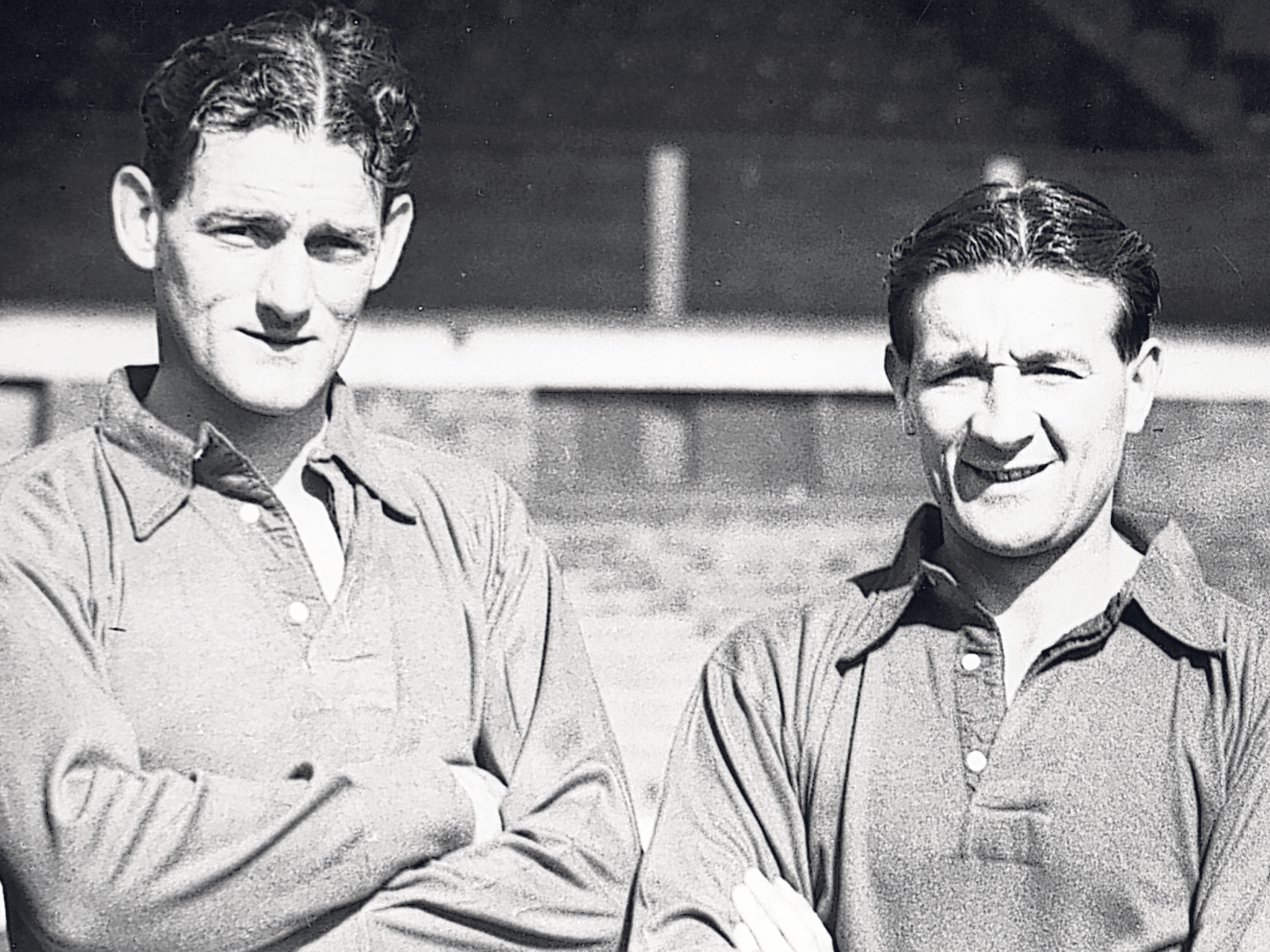Phil Taylor: Oldest surviving England football international

Phil Taylor, who was England's oldest surviving international footballer at the age of 95, was a central figure in Liverpool's history throughout the middle years of the last century. As a stylishly creative wing-half he excelled as the Anfield Reds won the first post-war League championship, in 1946-47, and he captained the side in the FA Cup final of 1950. As the club's manager, though, he was less successful, driving himself to distraction as the Merseysiders narrowly missed out on promotion to the top flight in three successive seasons before he resigned in late 1959 to make way for Bill Shankly, the man who built the modern Liverpool.
A natural leader who captained England Schoolboys at the age of 14, Taylor began with his local club, Bristol Rovers, for whom he turned professional in the spring of 1935. It seemed likely that he would soon outgrow the homely Pirates after a season impressing as a constructive inside-forward in the Third Division (South), and he moved to Liverpool in March 1936 in exchange for £5,000 and centre-forward Billy Hartill.
The deal was seen as a major coup as Arsenal – then the dominant force in the English game – had also coveted the tall, slim West Countryman, who settled quickly in the north, making his first impact as a left-winger, helping Liverpool to remain in the top division that season. Before long he reverted to inside-forward, striking up a productive midfield partnership with the stately wing-half Matt Busby and scoring 14 times in 1938-39.
During the war he served in the 9th King's Regiment, standing guard over Liverpool's viaducts on the trainline to London, but still finding time for football with the Reds, also guesting with the Uniteds of Leeds and Newcastle, Bristol Rovers and Brighton. After the conflict, with Busby having departed to inspire the renaissance of Manchester United, Taylor inherited both his former mentor's No 4 shirt and his massive influence on the Liverpool team, moving one reporter to describe the elegant 29-year-old as "a gem of Busbian worth".
Taylor held colossal sway as George Kay's exhilarating side – in which the revered Scottish winger Billy Liddell and prolific marksmen Albert Stubbins and Jack Balmer stood out – lifted the title by a point from Busby's revived United. Throughout that triumphant season Taylor had shone with his immaculate distribution, assured ball control, box-to-box dynamism and coolness under fire, and he garnered further reward that autumn when he was called up for England.
Despite having entered his thirties, he was riveting on his debut in a 3-0 victory over Wales in Cardiff, starting the move that led to Tom Finney's opening goal and supplying Stanley Matthews with a steady stream of passes. He seemed set for a lengthy international tenure, only to lose his place to the young Billy Wright in a reshuffle.
But although he had to settle for only three caps – all gained in the space of a month, in successive games – he remained a major force with Liverpool, replacing Balmer as captain for 1949-50 and leading the Reds to Wembley, where they were defeated 2-0 by Arsenal in the FA Cup final. Thereafter, however, a gradual decline set in, culminating in relegation in 1953-54, by which time Taylor was 36, with nearly 350 appearances to his credit but now only an occasional player. He remained at Anfield, first as a coach, then replacing the dismissed Don Welsh as manager in May 1956.
He began buoyantly, clinching the high-quality signings of the Scottish international goalkeeper Tommy Younger from Hibernian and the England wing-half Johnny Wheeler from Bolton Wanderers, and he still had the majestic Liddell as a touchstone. However, while expectations were immense, the club had become run-down under a complacent board, and a series of near-misses in the race to win promotion from the second tier – a third-place finish in 1957 followed by two fourths and a traumatic exit at the hand of non-league Worcester City – left Taylor severely stressed.
Come 1959-60 – the season in which he gave the future World Cup winner Roger Hunt his senior debut – Liverpool were lagging behind the championship pacemakers in mid-season, and the harassed Bristolian, who had not been helped by having to submit his team selections for vetting by the directors, decided he had suffered enough and resigned.
A gifted all-round sportsman who had briefly played first-class cricket for Gloucestershire, in 1938, he needed a lengthy break from the winter game and he went on to work as a sales representative. Taylor was an eminently decent man, popular with his charges and the majority of fans, but perhaps was not strong or ruthless enough for the demanding role of Liverpool manager. After signalling his Anfield exit after 23 years, he spoke poignantly of his burden: "I'm tired. The strain of trying to win promotion has proved too much ... I set my heart on it and strove for it with all the energy I could muster. Such striving has not been enough and now the time has come to hand over to someone else to see if they can do better."
Fortunately for Liverpool, that's just what Bill Shankly did.
Philip Henry Taylor, footballer and manager: born Bristol 18 September 1917; played for Bristol Rovers 1935-36, Liverpool 1936-54, capped three times by England 1947; managed Liverpool 1956-59; married (deceased; one daughter, and one daughter deceased); died 1 December 2012.
Subscribe to Independent Premium to bookmark this article
Want to bookmark your favourite articles and stories to read or reference later? Start your Independent Premium subscription today.

Join our commenting forum
Join thought-provoking conversations, follow other Independent readers and see their replies